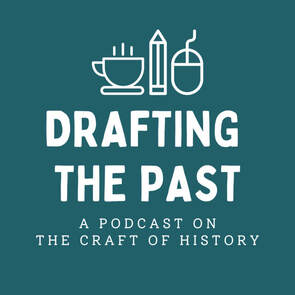Lizzy arrived in Alabama the year the stars fell. She was ten or eleven--she couldn’t say for sure--but for the rest of her life she would remember that night in 1833 when the world seemed to be ending. Around midnight on November 13, shooting stars began to fill the skies east of the Rocky Mountains, with Alabamians receiving the most spectacular view. Flashes of light and booming sounds woke people and drew them outside as meteors passed through the Earth’s atmosphere, dozens per second and hundreds per minute, according to some estimates. It was "as if the planets and constellations were falling from their places," one newspaper reported the next day. As the shower continued unabated for hours, witnesses started to wonder whether this was the long-awaited second coming of Christ. "And the stars of the heaven fell unto the earth," the book of Revelation reads, "for the great day of his wrath is come, and who shall be able to stand?" Terrified onlookers cried or prayed or simply stared in wonder. Up north in Illinois, a young man named Lincoln heard his innkeeper shouting "Arise, Abraham, the day of judgment has come!" For a century after, Alabama residents would mark time by the year the stars fell, the dividing line for local and personal histories. It was the dividing line for Lizzy too, a night the sky seemed to reflect what must certainly have felt like the end of her world: the year she was forced to leave her home in Virginia, sent west on a 700-mile trek to Alabama, and sold to a man named Edmund Townsend. Kate Carpenter: What goes in to preparing to write a passage like this? Isabela Morales:
As a little bit of background, the Lizzy I’m discussing here was a woman named Lizzy Perryman. She was very likely the daughter of a white woman, Frances Perryman, and a black man in Richmond, Virginia. And as you know, because slavery in the United States followed the condition of the mother, that meant that Lizzy was born free. But her existence as the mixed-race daughter of a white woman was an embarrassment to her mother’s family. So ultimately, her uncle sold her into slavery when she was a young girl--illegally, but who’s going to believe her word over his? That took place right around the time of this massive meteor shower over Alabama in 1833. And, you know, I’m not just speculating that she remembered this event and connected it with her kidnapping. I found a source--it was notes taken by a lawyer on a conversation with a local man who had known the Perryman family. And in those notes, the lawyer says that this man says the girl Lizzy estimated she was 10 or 11 in "the year the stars fell." So he’d heard it from Lizzy herself. Clearly she connected this cataclysmic celestial event with the most catastrophic event of her own life, which was her enslavement and forced migration to Alabama. As a writer, that was just too perfect a connection. When we talk about the domestic slave trade, the second Middle Passage, it was a world shattering event for enslaved people to be ripped from your family, your home, and sent hundreds of miles to a place where nobody knows you and you know no one. It is the end of the world. And here we have it happening for this young girl, in tandem with this crazy meteor shower that a lot of people, Black and white, feared was the literal end of the world. I remember writing that paragraph and getting to the part, you know, in the newspaper articles where people are praying and talking about Judgment Day, and suddenly it hit me what I could do there. I raced over the bookshelf, pulled out my Bible, and was flipping through the book of Revelation, because how many times do you get to quote Revelation in your writing? "The great day of his wrath has come." And for me, that presages another world shattering event that’s on its way: the Civil War. "My eyes have seen the glory of the coming of the Lord." So to find a source that brings Abraham Lincoln into the story to witness the falling of the stars from the sky was just an added bonus.
0 Comments
Leave a Reply. |
Blog byAward-winning author and historian of slavery R. Isabela Morales Archives
December 2023
Categories
All
|

 RSS Feed
RSS Feed